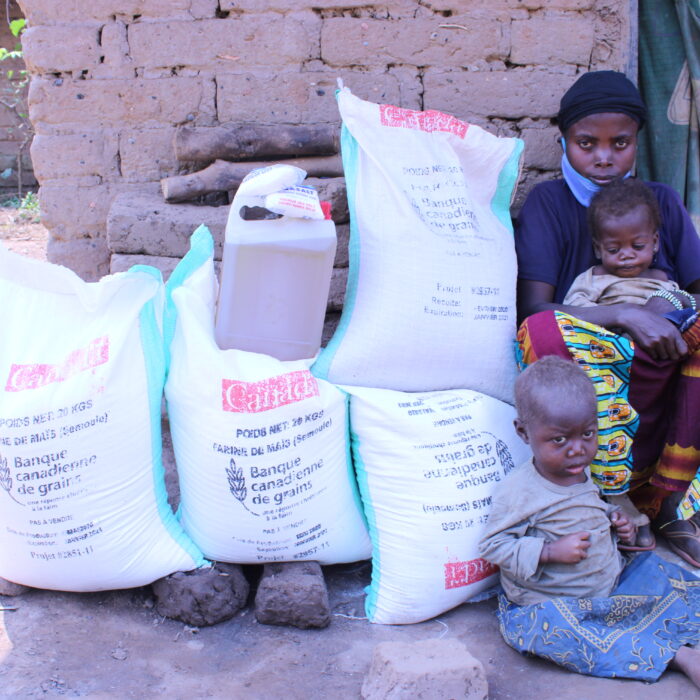Addressing hunger amid COVID-19
The COVID-19 pandemic has disproportionately affected populations already ravaged by violence, floods, drought, wildfires, displacements and disease. The pandemic’s disruption on food systems paused production and distribution of food in many places, thereby leading to a hike in the cost of food and food insecurity globally. Inevitably, we are faced with the dual crises of hunger and COVID-19.
In the Democratic Republic of the Congo, for example, an estimated 13.6 million people were likely to need emergency food assistance in early 2020. Unfortunately, COVID-19 will increase this projection. As governments imposed lockdowns to stop the spread of COVID-19, smallholder famers like Tosha Walengamina, an internally displaced person from Kabanga in Fizi (South Kivu), were prevented from harvesting their crops because of restrictions on movement. As a result, such farmers did not have access to their livelihoods and were made even more vulnerable. This inevitably affects the wellbeing of entire communities for the long term.

Tosha Walengamina, a beneficiary of MCC food assistance and a COVID-19 kit, poses with two of her children (names unavailable) at Mboko, South Kivu. Photo courtesy of Kabamba Lwamba/Oasis of Culture
As the lockdown increased the risk of starvation and malnutrition in DR Congo, Mennonite Central Committee supported a food assistance project funded by Canadian Foodgrains Bank and the Canadian government. Such food assistance can alleviate suffering for farmers like Walengamina and prevent a larger catastrophe. Responding to both the health crisis and the food crisis, MCC partner Oasis of Culture distributed food and COVID-19 hygiene kits to internally displaced households and host families in South Kivu.
Though the U.S. government has pledged funds for food assistance, more is needed. The growing needs caused by COVID-19 are enormous for vulnerable populations such as those in eastern DR Congo. According to a World Food Programme report, the number of people without enough nutritious food to eat will dramatically increase due to existing global inequalities exacerbated by the pandemic. David Beasley, WFP Executive Director notes that approximately 270 million people worldwide are at risk of starvation, hunger and disease—an 82 percent increase from before the pandemic.
On September 17, MCC joined a letter with other faith-based organizations to the U.S. Senate requesting an urgent response to addresses the threats of COVID-19 and a global economic downturn. The letter asks senators to co-sponsor the Support for Global Financial Institution Pandemic Response Act (S.4139), support debt relief and provide an additional $20 billion in foreign assistance.
As parts of a body, we are called by God to support each other. We acknowledge that a global collaborative effort will be required to overcome the unprecedented challenges of COVID-19. Scripture admonishes us thus “God has so arranged the body, giving the greater honor to the inferior member, that there may be no dissension within the body, but the members may have the same care for one another” (1 Corinthians 12:25, NRSV).
Though MCC will continue to work with local partners globally to ensure that vulnerable communities have enough nutritious food to eat and sustained livelihoods to meet their needs, it is not enough. A collaborative international effort must reinvigorate the global vision to eradicate hunger and tackle the additional challenges posed by COVID-19.
Photo:




